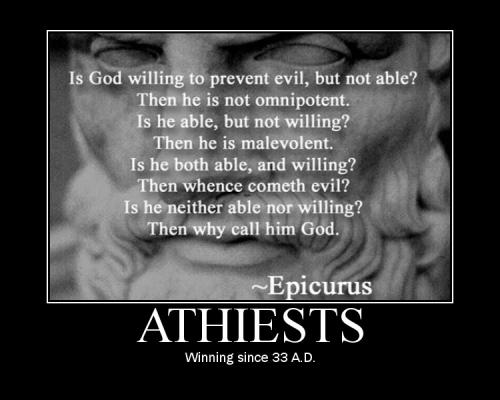JBeukema
Rookie
- Banned
- #21
If deity exists, then the moment it interacts with the natural world it becomes a natrual phenomena than science can address
No, that's a myth. When something unexplainable interacts with the natural world it remains unexplainable, thus is still outside the realm of science. We will be able to see the effect and how it was accomplished, but always unable to explain what influenced it.
Now you're just pleading ignorance. If it exists and interacts with the real world- then it is a apart of reality and can be studied. Whether we have the necessary tools and information t this point is irrelevant to that point. You're no different from those who said the heavens could never be understood because it was outside of Man's domain- only to have modern science make a fool of you.



